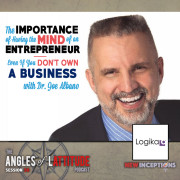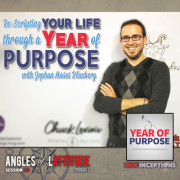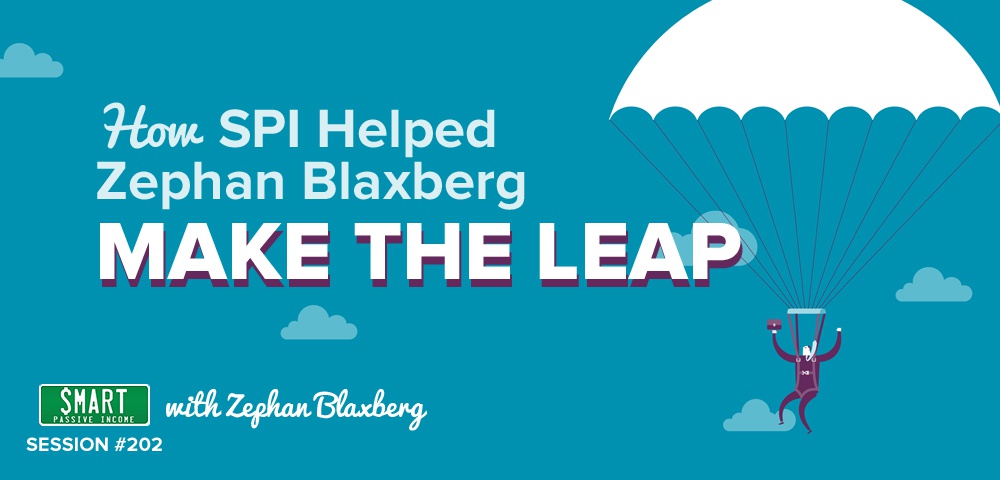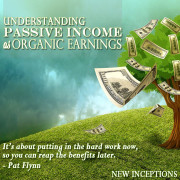AoL 030: The Importance of Having the Mind of an Entrepreneur with Joe Albano
The economy changed as we knew it in 2008 after the recession hit. It made jobs much harder to find. No longer was just a resume going to cut it – especially if you wanted a job that paid more than minimum wage.
2008 was also the year that Pat Flynn lost his job and started his long journey to making SPI what it is today. Personally, I’m glad that he made that decision because without him, there would be one less voice out there promoting entrepreneurship – especially lifestyle entrepreneurship and passive income.
I graduated grad school a year later in 2009. The only jobs I knew at the time were internships and teaching in grad school. That’s why, when I got out, I was sort of lost. I knew I what I didn’t want (to be in a large corporation or a dead end job), but I wasn’t quite sure what I wanted.
It eventually occurred to me within a month or so after graduation that I wanted to get my career started with a startup because I had gotten my focus in Entrepreneurship.
That eventually happened (a couple of times) and now I’m finally doing what I went to grad school for! 🙂
However, not everyone can make that transition as easy as many of us millennials can. There are some people that are still struggling with making the transition from the plan they had before the recession. Some lost all their retirement and are forced to do menial jobs to get by. Others have just kept pushing along in a job that might no longer be providing for them at a level they were used to.
Even I questioned what was going through people’s heads when they couldn’t see the writing on the wall when I started networking in late 2009 and early 2010. Why not just start their own thing instead of waiting for someone to give them something better?
That’s also what this session’s guest, Dr. Joe Albano, thought when he started running into people who were trying to run a business with the thought process of an employee. They were waiting for their business to be given to them. Long story short, he ended up switching the focus of working with large businesses to small and medium sized ones just because he knew how much of an impact he and his company could make if he helped from the ground up.
In this discussion, we chat about that passion about working with small businesses, what it takes to make a successful startup, what’s the difference between an employee mindset and entrepreneurial one, and why new entrepreneurs don’t need advice as much as they need support.
If you’re the type of entrepreneur who’s struggling to find success with your business, or just want to know why your peers don’t understand why you’d want to pursue a business in the first place, I think that this chat will help you straighten a few things out.
SPECIFICALLY, YOU’LL FIND OUT MORE ABOUT:
- How Joe’s older brother played an influence in Joe being interested in starting his own business.
- Why he feels that, as a Baby Boomer, it was a good decision to embrace entrepreneurship early in his career.
- Why he made the transition from working with big companies to working with small to medium sized businesses.
- Why he loves helping people look more at the human side of companies vs the management side.
- What Joe’s definition of an entrepreneur really is.
- Why he believes that the employee mindset no longer works in today’s world.
- What’s the first steps he recommends for your new startup.
- What Joe suggests to those who are running out of time to do all the different jobs to get their business started.
- Why he believes that many new entrepreneurs need less advice and more support.
- What Joe’s capacity is when working with college students.
- An update in what happened career-wise to one of our early hosts, Jonathan Ridge.
- Why it’s important that you learn to manage your own career.
- …and MUCH more.
Right click here and save-as to download this episode to your computer.
ITEMS and PEOPLE MENTIONED IN THIS EPISODE:
- Logika International
- Career and Coffee Events
- 16 Personalities
- Diana Whitney & Appreciate Inquiry
- Success Beyond School with Carol Coots
- Will It Fly by Pat Flynn (Amazon Link)
- Solopreneur Hour
- Unmistakable Creative
- Finding Someone to Be – Identity Formation Study
- The Founder’s Delimna by Naom Wasserman (Amazon Link)
- Audible – Want to hear Pat Flynn read his book? Get Your 30 Day Trial Period FREE + 1 Book Credit today!
SHOW NOTE EXTRAS:
Become an Entrepreneur by a guy that’s new to me by the name of Aleksander Vitkin
How to be an Entrepreneur by The School of Life
A Day in The Life of an Entrepreneur by Aleksander Vitkin
Career Advice on Becoming an Entrepreneur by Richard Branson
The Top 10 Mistakes of Entrepreneurs by Guy Kawasaki:
Thanks for Listening!
Thanks so much for joining us again this week. Have some feedback you’d like to share? Leave a note in the comment section below!
If you enjoyed this episode, please share it using the social media buttons you see at the top of the post.
Also, please leave an honest review for The AoL Podcast on iTunes! Ratings and reviews are extremely helpful and greatly appreciated! They do matter in the rankings of the show, and we read each and every one of them.
If you have any questions feel free to email them over via the email mentioned in the show or by our contact form.
And finally, don’t forget to subscribe to the show on iTunes, Stitcher, and/or Podbean. It’s absolutely free to do so.
A huge thank-you to you guys for joining us!
Cheers!









